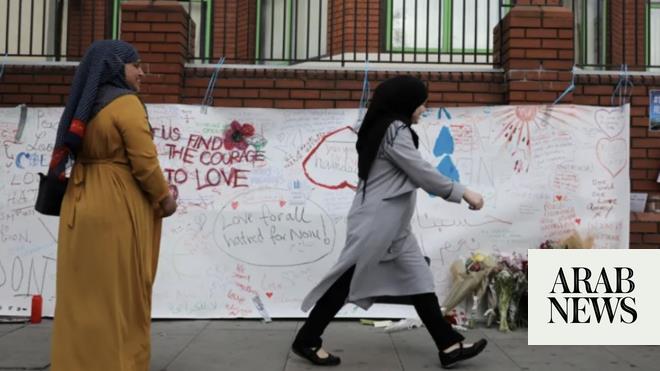
LONDON: Islamophobic stereotypes relating to “extremism” and “terrorism” are playing a major role in referrals to Britain’s anti-extremism program Prevent, according to a new report by Amnesty International that says the scheme is “fundamentally incompatible with the UK’s human rights obligations.”
Muslims are referred eight times more to the program than non-Muslims in the healthcare sector, said the 92-page report titled “This is the thought police.”
Prevent has faced criticism over claims that it acts as a “dragnet” by wrongly identifying people at risk of extremism.
It calls on teachers, doctors, social workers and others to identify people at risk of committing terrorism.
But in the report, which involved meetings with more than 50 professionals, including police, Amnesty warned that decision-making on cases often operates on “gut feeling.”
Secrecy and a lack of transparency surrounding Prevent also means that many of those referred to the program lack understanding of their cases.
“Prevent has a chilling effect across many human rights, including freedom of expression, assembly and the right to equality and non-discrimination,” said Amnesty UK CEO Sacha Deshmukh.
“There is no transparency and individuals are having to pursue costly multi-year battles for information about their own referrals.
“The dragnet approach inevitably sweeps up innocent people and can destroy their lives and futures.”
The Amnesty report identified a pattern of discrimination against Muslims who are referred to Prevent.
In one case, 14-year-old Zain was referred to Prevent after joking during a school fire drill that he hoped the building “burned down.”
A fellow student six weeks later reported that Zain wanted to “blow up the school” along with the “teachers inside it.”
Despite the 14-year-old telling the school that his comment was a joke because he was “stressed with homework and the rules,” he was referred to Prevent.
His mother Jasmine, who was not informed about her son’s referral, said: “She (the teacher) looked at my son, saw a brown Muslim boy, and she made the Prevent referral not based on evidence but based on her own bias.
“The referral had a detrimental impact on the family. The case shows no behavior suggesting ‘radicalization’; it appears that widespread stereotypes linking Muslim boys with ‘extremism and terrorism’ and Prevent influenced the decision to refer him.”
In another case, 30-year-old teacher Irfan was referred to the program after filing a complaint about his manager, who had allegedly taunted him with Islamophobic abuse, including calling him a “terrorist.”
But after being notified of his referral, Irfan was not provided any further information. He later resigned from his job.
He told Amnesty: “I put on a brave face but (during the police visit) my kids were looking at me and my heart was beating 300 beats per minute. It had a huge impact on my mental health.”
Deshmukh said: “People have no way of knowing what the authorities do with their information, what it can mean for them, or if they will be flagged as a danger for life.
“The shroud of secrecy is alarming. We are especially concerned about the growing number of young people, particularly minoritised, Muslim and neurodiverse people who are being referred to Prevent.
“The problems run so deep that Prevent should be abolished and replaced with greater investment in child protection and education, and safeguarding methods with a proven track record.”











